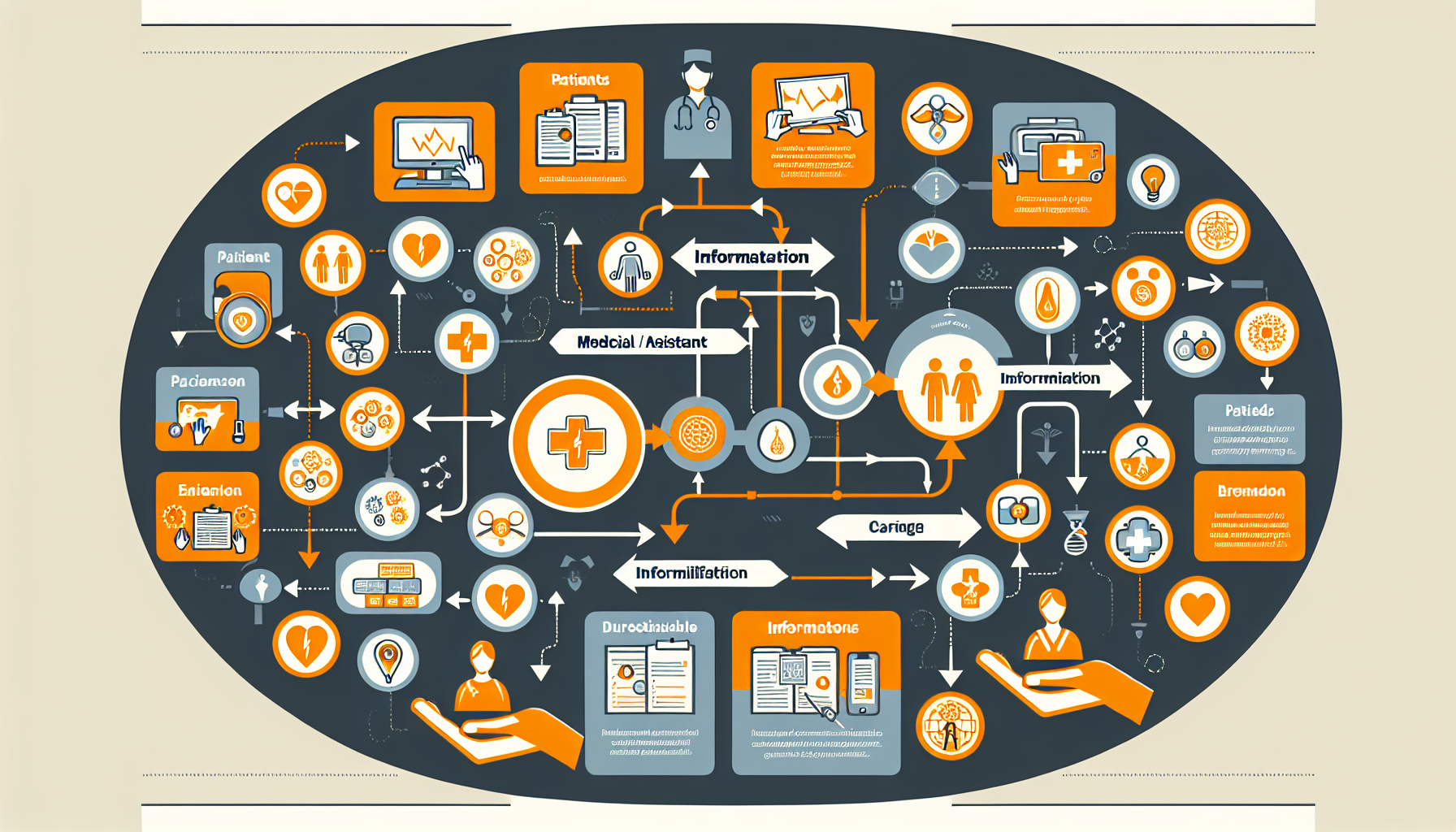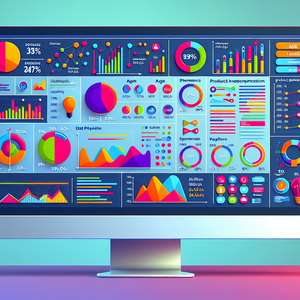The Tech-Savvy Medical Assistant: Embracing Digital Health Tools

The healthcare industry has undergone a significant digital transformation over the past decade. From electronic health records (EHRs) to telemedicine, these technologies have redefined patient care, making it more efficient and accessible. Medical assistants, often the linchpins of clinical operations, are instrumental in integrating these tools into everyday practice. Their ability to adapt and utilize digital health innovations is crucial, not only for optimizing workflow but also for improving patient outcomes. The increasing reliance on technology in healthcare settings has placed medical assistants at the heart of this digital transformation, requiring them to enhance their technical skills to meet the demands of modern healthcare delivery.
Enhancing Patient Care with Digital Tools
One of the primary benefits of digital health tools is the enhancement of patient care. Electronic health records, for example, allow medical assistants to easily access and update patient information, ensuring that healthcare providers have accurate and timely data. This accessibility reduces the risk of errors, facilitates more informed decision-making, and enables comprehensive care. Moreover, digital tools such as patient portals empower patients to become active participants in their healthcare journey, fostering better communication between patients and providers. For instance, a medical assistant can use an EHR system to quickly verify a patient’s medication history before an appointment, ensuring that the physician is aware of any potential contraindications or allergies. This proactive approach not only enhances patient safety but also builds trust, as patients recognize that their healthcare providers are informed and attentive to their needs. By bridging the gap between patients and healthcare providers, medical assistants help create a more cohesive and collaborative healthcare experience.
Streamlining Clinical Workflows
Digital health tools also play a crucial role in streamlining clinical workflows. Telemedicine platforms, for example, have become indispensable, especially in the wake of the COVID-19 pandemic. Medical assistants are often responsible for setting up virtual appointments, troubleshooting technical issues, and ensuring that the necessary documentation is completed. By facilitating these processes, medical assistants help reduce wait times and improve the efficiency of healthcare delivery. Additionally, digital scheduling systems allow medical assistants to manage appointments more effectively, minimizing no-shows and optimizing the provider’s time. These systems can automatically send reminders to patients, reducing the administrative burden on staff and allowing more focus on patient care. The efficiency brought about by these digital tools enables medical assistants to allocate more time to patient interaction and support, ultimately enhancing the overall quality of care.
Challenges and Adaptation
Despite the numerous benefits, integrating digital health tools is not without its challenges. Medical assistants must often undergo training to become proficient in new systems, which can be time-consuming and costly. There is also the challenge of ensuring data security and patient privacy, as digital systems can be vulnerable to breaches. Protecting sensitive patient information is paramount, requiring medical assistants to be vigilant and knowledgeable about cybersecurity protocols. Moreover, the rapid pace of technological advancement means that medical assistants need to continuously update their skills to keep up with the latest tools and systems. This constant learning curve can be daunting, but it is essential for maintaining a high standard of care. Embracing this challenge requires a commitment to ongoing education and professional development, ensuring that medical assistants remain at the cutting edge of healthcare technology.
As healthcare continues to embrace digital transformation, the role of the medical assistant will undoubtedly evolve. Those who are adaptable and willing to embrace technology will find themselves at the forefront of this transformation, playing a critical role in shaping the future of patient care. By leveraging digital health tools, medical assistants not only enhance the efficiency of clinical operations but also contribute significantly to improved patient outcomes. As technology continues to advance, the medical assistant’s journey towards becoming tech-savvy is not just a necessity but a stepping stone towards a more innovative, patient-centered healthcare system. In conclusion, the integration of digital health tools in healthcare settings is redefining the role of medical assistants. By equipping themselves with the necessary technological skills, medical assistants can effectively navigate this digital landscape, ensuring that they remain indispensable assets to healthcare teams. As they continue to embrace and adapt to technological advancements, medical assistants will play a pivotal role in delivering high-quality, efficient, and patient-centered care in the digital age.
EHR Implementation Specialist
Hospitals, healthcare IT consulting firms
Core Responsibilities
Oversee the integration and optimization of Electronic Health Record (EHR) systems in healthcare facilities.
Provide training and support to healthcare staff, ensuring effective use of EHR tools.
Required Skills
Proficiency in EHR systems like Epic or Cerner.
Strong analytical skills to customize EHRs based on facility needs.
Common Employers
Hospitals, healthcare IT consulting firms.
Unique Qualifications
Certification in Health Information Technology (HIT) is often preferred.
Telemedicine Coordinator
Healthcare networks, private telehealth companies
Core Responsibilities
Manage virtual healthcare delivery by coordinating telemedicine appointments and ensuring seamless communication between patients and providers.
Troubleshoot technical issues related to telehealth platforms.
Required Skills
Familiarity with telemedicine software like Zoom for Healthcare or Doxy.me.
Excellent organizational and customer service skills.
Common Employers
Healthcare networks, private telehealth companies.
Unique Qualifications
Experience in healthcare administration or IT support is advantageous.
Healthcare Data Analyst
Health systems, research institutions
Core Responsibilities
Analyze healthcare data to identify trends and improve patient outcomes.
Develop reports and dashboards for clinical and administrative decision-making.
Required Skills
Proficiency in data analysis tools such as SQL, R, or Tableau.
Strong understanding of healthcare metrics and quality measures.
Common Employers
Health systems, research institutions.
Unique Qualifications
Experience in healthcare data management or a related field is often required.
Patient Portal Specialist
Healthcare providers, medical practices
Core Responsibilities
Facilitate the use of patient portals, enhancing patient engagement and self-management.
Provide training to patients and staff on portal functionalities.
Required Skills
Knowledge of patient portal systems like MyChart or Healow.
Strong communication skills to effectively educate users.
Common Employers
Healthcare providers, medical practices.
Unique Qualifications
Background in patient education or health informatics can be beneficial.
Medical Device Integration Specialist
Medical device companies, hospitals
Core Responsibilities
Ensure seamless integration of medical devices with digital health systems.
Monitor and maintain device performance and data accuracy.
Required Skills
Expertise in medical device technology and interoperability standards.
Problem-solving skills to address integration challenges.
Common Employers
Medical device companies, hospitals.
Unique Qualifications
Certification in Biomedical Engineering Technology (BMET) is an asset.


